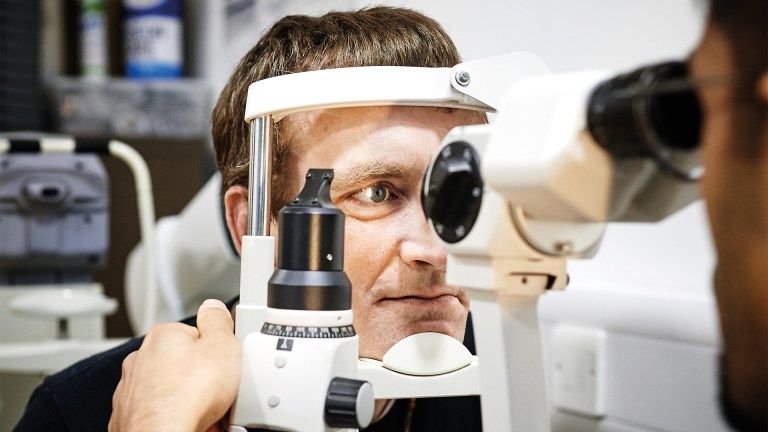Instead of paying for several buses to a clinic or expensive hospital parking, and enduring months-long waiting lists, locals can pop into The People’s Place for a ‘one-stop-shop’ screening and then be referred on for medication or follow-up treatments.
McLean says the club “attracts people who wouldn’t attend a health care appointment or go to their GP”.
To date, the Breathlessness Hub has screened 1,085 people, with 30 potential heart failure cases detected, 27 patients have received a spirometry appointment, which measures how much air you can breathe in and out, and an additional 100 have been scheduled in for a spirometry test in the coming weeks. What’s more, 137 patients have received further respiratory investigations at the hub and three patients have been referred on to a virtual ward for a follow-up.
It’s estimated the hub has saved the NHS £39,720 since its inception.
Recent survey feedback from those who have used the hub revealed that 89% of patients preferred their experiences at The People’s Place to a clinical hospital setting. It’s more relaxed, with tea, coffee and a chat on offer while you await a scan.
Given the hub’s massive uptake, Everton in the Community partnered with Pumping Marvellous, Liverpool University Hospitals NHS Foundation Trust, Us2.ai and LumiraDx to open up a mass screening in Goodison Park for local residents aged 40 and over.
Advertising helps fund Big Issue’s mission to end poverty
Nearly 950 attended on the day for free heart health checks to identify suspected cardiovascular conditions and enable people to receive earlier diagnosis and treatment. “Within an hour, people had gone through the full pathway,” McLean says. “Whereas they might have been waiting six weeks just for paperwork to be looked at to even get an appointment.”
Some 20% of attendees at the mass screening were identified as symptomatic of heart failure, and over 200 people received a NT-proBNP test, used to determine how able the heart is to pump blood around the body. Of those, 16 individuals had elevated NT-proBNP levels, which can indicate the presence of heart failure. Subsequently, these patients either received an echocardiogram at the event or were referred for an urgent echocardiogram at the charity’s weekly heart and lung screening hub.
Additionally, a significant number of people were identified with high blood pressure and atrial fibrillation – which is a condition that causes an irregular and often fast heartbeat. By detecting these conditions earlier on, the charity has helped prevent potential strokes and heart failure while contributing to NHS savings.
“We also picked up lots of people who were asymptomatic,” says McLean. One man seen had been asymptomatic, and without the screening, would have soon collapsed, with no one knowing why. Luckily, two weeks after his screening, he was fitted with a pacemaker – his life saved.
The charity’s Breathlessness Hub is England’s first community-based heart and lung-screening hub and is leading the way with community health screenings.
“We offered support on the day of the mass screening and extra support through the weekly hub for extra follow-up appointments,” McLean says. “We also have access to 60 other projects in the community.”
Advertising helps fund Big Issue’s mission to end poverty
For other football clubs to follow suit, Jones says it would take resourcing and multi-agency cooperation, with healthcare partners coming together with clubs.”
We want to share our learnings so that different healthcare organisations and football clubs can take
lessons from it and do it,” he says.
World Heart Day is on 29 September.
Do you have a story to tell or opinions to share about this? Get in touch and tell us more. Big Issue exists to give homeless and marginalised people the opportunity to earn an income. To support our work buy a copy of the magazine or get the app from the App Store or Google Play.










